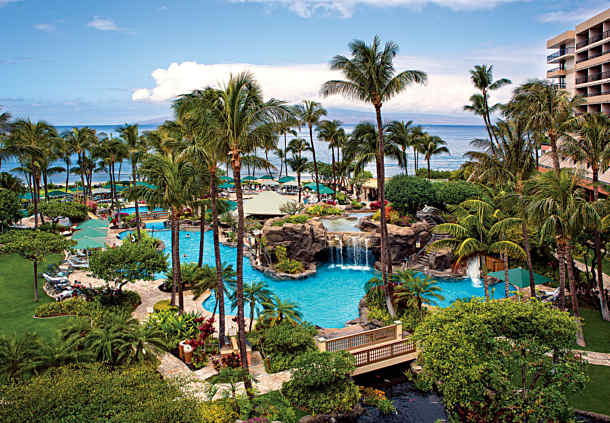RCI and II charge a yearly subscription charge, and extra charges for when they discover an exchange for a requesting member, and bar members from leasing weeks for which they already have exchanged. how to cancel a wyndham timeshare contract. Owners can also exchange their weeks or points through independent exchange business. Owners can exchange without needing the resort to have a formal affiliation arrangement with the business, if the resort of ownership concurs to such plans in the original agreement. Due to the promise of exchange, timeshares frequently sell regardless of the place of their deeded resort. What is rarely disclosed is the distinction in trading power depending upon the location, and season of the ownership.
Nevertheless, timeshares in extremely preferable places and high season time slots are the most pricey in the world, subject to demand normal of any greatly trafficked trip location. An individual who owns a timeshare in the American desert neighborhood of Palm Springs, California in the middle of July or August will have a much minimized capability to exchange time, because less concerned a resort at a time when the temperature levels remain in excess of 110 F (43 C). A major distinction in types of trip ownership is between deeded and right-to-use contracts. With deeded agreements using the resort is generally divided into week-long increments and are offered as real estate through fractional ownership.
The owner is likewise responsible for an equivalent part of the property tax, which normally are gathered with condominium maintenance charges. The owner can potentially deduct some property-related costs, such as real estate taxes from gross income. Deeded ownership can be as complex as outright residential or commercial property ownership because the structure of deeds vary according to local home laws. Leasehold deeds are common and offer ownership for a fixed duration of time timeshares jobs after which the ownership reverts to the https://postheaven.net/urutiuzemk/if-you-desire-to-get-out-of-your-timeshare-there-are-a-wide-array-of-timeshare freeholder. Periodically, leasehold deeds are offered in perpetuity, nevertheless numerous deeds do not communicate ownership of the land, however merely the home or system (housing) of the accommodation.
Hence, a right-to-use agreement grants the right to utilize the resort for a particular number of years. In many nations there are severe limitations on foreign property ownership; thus, this is a common technique for developing resorts in nations such as Mexico. Care ought to check here be taken with this kind of ownership as the right to use typically takes the form of a club membership or the right to utilize the appointment system, where the appointment system is owned by a company not in the control of the owners. The right to utilize may be lost with the death of the controlling company, since a right to use purchaser's contract is usually only great with the existing owner, and if that owner sells the property, the lease holder could be out of luck depending on the structure of the agreement, and/or existing laws in foreign venues.
An owner may own a deed to use a system for a single given week; for example, week 51 typically consists of Christmas. An individual who owns Week 26 at a resort can use just that week in each year. Sometimes systems are offered as drifting weeks, in which a contract specifies the number of weeks held by each owner and from which weeks the owner may select for his stay. An example of this might be a drifting summer week, in which the owner might pick any single week during the summer season. In such a situation, there is most likely to be higher competitors throughout weeks featuring holidays, while lower competitors is most likely when schools are still in session.
Some are sold as rotating weeks, commonly described as flex weeks. In an attempt to provide all owners an opportunity for the finest weeks, the weeks are rotated forward or backwards through the calendar, so in year 1 the owner might have use of week 25, then week 26 in year 2, and after that week 27 in year 3. This approach gives each owner a reasonable opportunity for prime weeks, however unlike its name, it is not flexible. A variant form of real estate-based timeshare that combines features of deeded timeshare with right-to-use offerings was established by Disney Getaway Club (DVC) in 1991.
Fascination About How Os The Whimmin Time Timeshare
Each DVC member's residential or commercial property interest is accompanied by a yearly allocation of holiday points in proportion to the size of the property interest. DVC's getaway points system is marketed as extremely versatile and may be utilized in different increments for vacation remains at DVC resorts in a variety of lodgings from studios to three-bedroom vacation homes. DVC's trip points can be exchanged for getaways worldwide in non-Disney resorts, or may be banked into or borrowed from future years. DVC's deeded/vacation point structure, which has been utilized at all of its timeshare resorts, has been adopted by other big timeshare designers consisting of the Hilton Grand Vacations Business, the Marriott Holiday Club, the Hyatt Home Club and Accor in France.

Points programs each year offer the owner a number of points equivalent to the level of ownership. The owner in a points program can then use these points to make travel arrangements within the resort group. Many points programs are connected with big resort groups using a big selection of options for destination. Numerous resort point programs offer flexibility from the conventional week stay. Resort point program members, such as World, Mark by Wyndham and Diamond Resorts International, might request from the whole available inventory of the resort group. A points program member might often request fractional weeks as well as complete or numerous week stays.

The points chart will permit elements such as: Popularity of the resort Size of the accommodations Number of nights Desirability of the season Timeshare residential or commercial properties tend to be home design lodgings ranging in size from studio systems (with space for 2), to 3 and four bed room units. These larger units can generally accommodate big families easily. Units typically consist of fully equipped cooking areas with a dining location, dishwasher, televisions, DVD gamers, and so on. It is not unusual to have washers and dryers in the system or accessible on the resort residential or commercial property. The kitchen area and features will reflect the size of the specific unit in question.
Generally, but not exclusively: Sleeps 2/2 would typically be a one bed room or studio Sleeps 6/4 would normally be a two bedroom with a sofa bed (timeshares are sold worldwide, and every place has its own unique descriptions) Sleep independently generally refers to the variety of guests who will not have to walk through another guest's sleeping location to utilize a toilet. Timeshare resorts tend to be rigorous on the variety of guests allowed per unit. how to get out of a holiday inn club timeshare. System size impacts the expense and need at any provided resort. The exact same does not apply comparing resorts in different places. A one-bedroom system in a desirable location might still be more costly and in greater demand than a two-bedroom accommodation in a resort with less need.